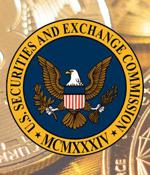Security News

Noting that banking fraud continues to rise, the data-driven research study found a 41% increase in attempted fraud over a similar evaluation conducted the year before by its data scientists. Data scientists and fraud subject matter experts compiled anonymized data secured from a subset of its total monitored transactions, including both online and offline payments channels that covered ACH, wires, checks, card purchases, and P2P transactions.

Visa has invested $9 billion over a five-year period to fund new fraud and security initiatives that include multi-layered cybersecurity, AI and analytics to further secure digital transactions. One service, Visa's flagship predictive analytics product Advanced Authorization, prevented an estimated $26 billion in fraud in 2021, according to Michael Jabbara, vice president and global head of fraud at Visa, in a recent interview with TechRepublic.

China's Ministry of Public Security has revealed the five most prevalent types of fraud perpetrated online or by phone. The e-commerce scam known as "Brushing" topped the list and accounted for around a third of all internet fraud activity in China.

Many of the victimized entities were U.S.-based financial institutions and brokerage firms that suffered direct system compromise from Mustapha and his co-conspirators, who performed unauthorized transactions using other peoples' brokerage accounts. "The defendant was part of a nefarious group that caused millions of dollars in losses to victims by engaging in a litany of cybercrimes, including widespread hacking, fraud, taking control of victims' securities brokerage accounts, and trading in the name of the victims," stated U.S. Attorney Breon Peace.

FBI: $43 billion in losses are due to Business Email Compromise fraud between 2016 and 2021. The Federal Bureau of Investigation released an alert that said there has been a 65% increase in identified global exposed losses from Business Email Compromise fraud, also known as Email Account Compromise.

The U.S. Securities and Exchange Commission on Tuesday announced that it will expand and rebrand its Cyber Unit to fight against cyber-related threats and protect investors in cryptocurrency markets. To that end, the SEC is renaming the Cyber Unit within the Division of Enforcement to Crypto Assets and Cyber Unit and plans to infuse 20 additional positions with the goal of investigating wrongdoing in the crypto markets.

There's just one problem: most fraud prevention companies aren't heeding the signals and drinking the DevOps deployment Kool-Aid. Let's look at how other fraud prevention companies can benefit from this approach-and what it will take for fellow fraud-stoppers to embrace the DevOps deployment model.

Google on Monday disclosed that it's taking legal action against a nefarious actor who has been spotted operating fraudulent websites to defraud unsuspecting people into buying non-existent puppies. "The actor used a network of fraudulent websites that claimed to sell basset hound puppies - with alluring photos and fake customer testimonials - in order to take advantage of people during the pandemic," Google's CyberCrime Investigation Group manager Albert Shin and senior counsel Mike Trinh said.

Results from an Association for Financial Professionals survey are encouraging, as 71% of organizations report having been victims of payments fraud activity in 2021, lower than the 81% reported in 2019 and the lowest percentage recorded since 2014. Check fraud activity is unchanged from the prior year at 66%, while the share of respondents reporting payments fraud via ACH debits increased four percentage points from last year to 37%. Checks and ACH debits are the most susceptible to payments fraud, while wire fraud activity continued its steady decline from 48% in 2017 to 32% in 2021.

Reported cases of consumer fraud more than tripled in the years 2020-2021 from prior years, finds a new report by Accenture, presenting a growing challenge for public safety agencies to find new strategies to counter the trend. The report compiled data from eight developed nations on consumer fraud, defined as any fraud directly targeting citizens and excluding fraud targeting government agencies and companies.